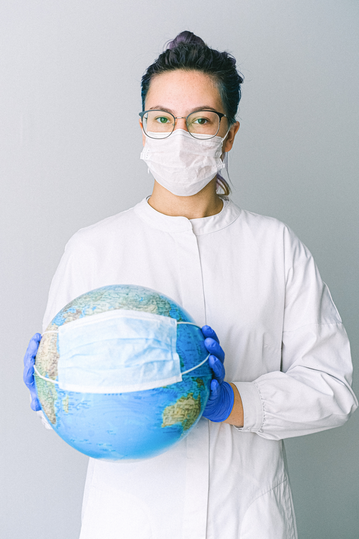- Home
-
Featured Listings
- Ojai Valley Homes for Sale >
- Ventura County Homes for Sale >
- Lots and Land for Sale >
- Commercial Properties for Sale >
- Commercial Properties for Rent >
-
Sold Properties
>
- Little Orchard Farms
- 1475 Buena Vista Street
- 474 Avenida de la Vereda
- 1084 Woodland Avenue
- 4239 Grand Avenue
- 910 Spring Street
- 775 Spring Street
- Frog River Ranch
- 75 High Street
- 405 West Ojai Avenue
- 135 Wormwood Street
- 921 Patricia Court
- 12523 Treeranch Road
- 755 Spring Street
- 10802 Oak Knoll Road
- 1205 Fierro Drive
- 1202 Loma Drive 122
- 104 East Warner Street
- 13382 East Sulphur Mountain Road
- 150 Monte Via
- 311 Shady Lane
- 906 Logan Avenue
- 620 Jordan Avenue
- 487 Montana Circle
- 701 Canada Street
- 1188 Fierro Drive
- 8577 Liveoak Avenue
- 10248 Ojai Santa Paula Road
- 1210 South La Luna Avenue
- 2899 Matilija Canyon Road
- 1114 Alviria Drive
- 106 East Eucalyptus Street
- 913 Gardner Avenue
- 214 Eucalyptus Street
- 709 Lemon Grove Avenue
- 60 Watkins Way
- 1330 South La Luna Avenue
- 350 Old Grade Road
- 9972 Creek Road
- 1923 Meiners Road
- 12605 Highwinds Road
- 240 Feliz Drive
- 11373 Puesta Del Sol
- 11311 Creek Road
- 1116 Del Nido Court
- 802 El Toro Road
- 131 West Oak View Avenue
- Lucky Q Ranch
- 291 Larmier Avenue
- 1577 Kenewa Street >
- 300 Del Norte Road
- 707 Mesa Drive
- 46 Olive Street
- 616 West Heather Street
- 805 Park Road
- 407 Tico Road
- 4569 Grand Avenue
- 209 South Ventura Street
- 10808 Creek Road
- 10864 Creek Road
- 1436 North Montgomery Street
- 562 Thomas Street
- 206 Mahoney Avenue
- 601 Canada Street
- 5180 Reeves Road
- 1923 South Hill Road
- Gateway Plaza
- 250 El Camino Drive
- 2451 Bonmark Drive
- 990 Loma Drive
- 1273 South Rice Road #72
- 646 Country Drive
- 1405 Meadowbrook Road
- 10999 Ojai Santa Paula Road
- 8726 Nye Road
- 366 Ridgeway Place
- 10692 Encino Drive
- 210 Del Norte Road
- 1175 Camille Drive
- 10248 Ojai Santa Paula Road
- 125 Prospect Street
- 126 Valley Ridge Street
- 434 South Carrillo Road
- 307 Drown Avenue
- 1400 Loma Drive
- 1215 Daly Road
- 48 Rockaway Road
- 131 Palm Drive (Camarillo)
- 12147 Old Walnut Road
- 10655 Encino Drive
- 706 Mesa Drive
- 914 Patricia Court
- 2451 Bonmark Drive
- 1195 Rancho Court
- 81 Grapevine Road
- 522 Pleasant Avenue
- 15301 Ojai Road
- 214 Topa Topa Drive
- 107 Shady Lane
- 550 Donna Street
- 161 Sunset Avenue
- Matilija Canyon Ranch
- 3359 Reeves Road
- 10802 Creek Road
- 512 Grand Avenue
- 779 Country Drive
- 570 Old Ventura Avenue
- 609 Canada Street Unit F
- 2800 Maricopa Highway
- 417 McAndrew Road
- 1211 North Signal Street
- 205 East Oak View Avenue
- 153 Pueblo Avenue
- 10950 Encino Drive
- 350 Olive Street
- 66 Grapevine Road
- 1188 Woodland Avenue
- 120 Riverside Road
- Rancho Grande
- 212 Topa Topa Drive
- 12170 Grape Hill Road
- 7884 Camp Chaffee Road
- 2285 East Ojai Avenue
- 2267 Burnham Road
- 12774 Tree Ranch Road
- 773 Fairview Road
- 2230 South Rice Road
- 166 South Poli Street
- 142 Don Ricardo Way
- 88 High Street
- 543 Spring Street
- 4 Catalina Drive
- 837 South La Luna Avenue
- 410 Crestview Drive
- 353 South Lomita Avenue
- 310 Monte Via Avenue
- 2110 Sumac Drive
- 2125 East Ojai Avenue
- 442 Burnham Road
- 605 Grand Avenue
- 122 Olive Street
- 267 Fairview Road
- 302 Fairview Road
- 520 Foothill Road
- 10254 Ojai Santa Paula Road
- 2171 Burnham Road
- 12770 Tree Ranch Road
- 403 N Montgomery Street
- 1485 Orchard Drive
- 929 Cuyama Road
- 14843 Maricopa Highway
- 2979 Matilija Canyon Road
- 1420 Cuyama Road
- 1921 Meiners Road
- 128 Canterbury Court
- Ojai Valley Rentals >
-
About Ojai
- About The Davis Group
-
Resources
- Blog
- Contact Us
|
The global pandemic has changed our lives in many ways, including revising our priorities as we balance personal and public health with meeting our basic needs, figuring out new ways to work, and determining the best ways to be both social and safe. In times such as this when our focus is on the short-term goals of staying healthy, keeping businesses afloat, and finding a way to the other side of the pandemic, it can be difficult to also keep an eye towards long-term goals, such as keeping the planet healthy for future generations. This is exacerbated by some of the necessary changes put in place to reduce transmission and protect both consumers and workers. For example, we can no longer grab a cup of coffee in our reusable mugs, and many grocery stores are no longer allowing the use of reusable shopping bags. While many of us are not driving as much, we are increasing the environmental effects of transportation by ordering everything online and having it delivered to our doorstep. Those who have replaced dining out with regularly ordering takeout and delivery now have stacks of single-use food containers going into the recycling bin or to the landfill every week. The focus needs to be on keeping ourselves and each other healthy and working together to get through this. This requires using more disposable products than most of us would like, but there are still steps we can take to maintain a greener lifestyle while focusing on these immediate priorities. We can start with these: 1. Resist the urge to stock up on bottled water. The water supply is not currently under threat. Continue using your filter pitchers, fill your own jugs at Rainbow Bridge, or establish delivery service for three- or five-gallon, reusable jugs that you return to the provider. 2. Start a compost pile. If you are cooking more than you used to, you have more kitchen scraps to discard. If you don’t already have a compost bin or pile, start one to put those scraps to good use in your garden. 3. Invest in a sparkling water maker. Products like SodaStream let you make your own sparkling water and flavored sodas, which means fewer cans and bottles to recycle. 4. Green your takeout and delivery routine. We cannot use our own containers when we order food to go right now, but we can still limit the waste that comes with these orders. If you are picking up food to eat at home, refuse the utensils, napkins, and straws that usually come with takeout. If you are having food delivered, specify that you do not want utensils and napkins delivered with your order. When picking up food on your lunch break or on your way to a socially distanced picnic, bring your own cloth napkins, reusable straws, and utensils. There are lots of travel sets available with carrying cases that you can keep in your car or bag to make sure you always have reusable options with you. 5. Change your buying habits. Look for simple ways to purchase fewer single-use products. For example, buy yogurt that comes in reusable glass jars instead of plastic containers that need to be recycled. Or, better yet, if you are spending more time at home, you might think about learning how to make your own yogurt. 6. Make the best bag choices you can. If you cannot use reusable shopping bags at your favorite places to shop, ask for paper bags. If only plastic bags are available, sanitize them and stash them away for later use as trash bags or poop bags. 7. Consolidate your online orders. When we are spending more time at home and ordering most of what we need online, it is easy to fall into the habit of placing orders whenever you think of something you need. This is particularly true if you are one of the many who do most of our buying through Amazon Prime with free shipping on however many orders we place in a day. Reduce packaging waste and transportation by treating your online shopping as you would in-person shopping: make a list and consolidate your shopping trips. Instead of jumping online to order nail polish today, a case of canned tomatoes tomorrow, and then yarn for a new craft project the next day, make a shopping list and place your orders at the same time. You can even place things in your cart so you won’t forget about them – just resist the urge to hit “Buy Now” every time you want something. If you are an Amazon Prime member, you can reduce packaging waste and transportation even more by forgoing the much-loved, two-day shipping and choosing Amazon Day instead. With this program, orders are consolidated into as few boxes as possible and all delivered on the same day each week. 8. Support local crafters by purchasing reusable masks. Reusable masks are better for the environment than single-use options, and there are lots of local folks who have taken up mask making to supplement incomes reduced by the pandemic. Keep in mind that reusable masks need to be washed after each use and that some materials provide better protection than others. Before buying masks, do a quick online search to educate yourself about the best options. AimeeJo Davis-Varela is a freelance writer specializing in real estate, sustainable home improvement, eco-friendly landscaping, green living and travel writing. She is also the owner of Mind Your Manors, which provides second home management services.
0 Comments
Your comment will be posted after it is approved.
Leave a Reply. |
The Davis Group
Welcome to our
Ojai living and Ojai real estate blog. Subscribe by email...
Categories
All
Archives
June 2024
|
Home | Ojai Homes for Sale | About Ojai | About The Davis Group | Real Estate Resources | Blog | Contact Us
Nora Davis & The Davis Group | LIV Sotheby's International Realty | 727 West Ojai Ave., Suite D, Ojai, CA
- Home
-
Featured Listings
- Ojai Valley Homes for Sale >
- Ventura County Homes for Sale >
- Lots and Land for Sale >
- Commercial Properties for Sale >
- Commercial Properties for Rent >
-
Sold Properties
>
- Little Orchard Farms
- 1475 Buena Vista Street
- 474 Avenida de la Vereda
- 1084 Woodland Avenue
- 4239 Grand Avenue
- 910 Spring Street
- 775 Spring Street
- Frog River Ranch
- 75 High Street
- 405 West Ojai Avenue
- 135 Wormwood Street
- 921 Patricia Court
- 12523 Treeranch Road
- 755 Spring Street
- 10802 Oak Knoll Road
- 1205 Fierro Drive
- 1202 Loma Drive 122
- 104 East Warner Street
- 13382 East Sulphur Mountain Road
- 150 Monte Via
- 311 Shady Lane
- 906 Logan Avenue
- 620 Jordan Avenue
- 487 Montana Circle
- 701 Canada Street
- 1188 Fierro Drive
- 8577 Liveoak Avenue
- 10248 Ojai Santa Paula Road
- 1210 South La Luna Avenue
- 2899 Matilija Canyon Road
- 1114 Alviria Drive
- 106 East Eucalyptus Street
- 913 Gardner Avenue
- 214 Eucalyptus Street
- 709 Lemon Grove Avenue
- 60 Watkins Way
- 1330 South La Luna Avenue
- 350 Old Grade Road
- 9972 Creek Road
- 1923 Meiners Road
- 12605 Highwinds Road
- 240 Feliz Drive
- 11373 Puesta Del Sol
- 11311 Creek Road
- 1116 Del Nido Court
- 802 El Toro Road
- 131 West Oak View Avenue
- Lucky Q Ranch
- 291 Larmier Avenue
- 1577 Kenewa Street >
- 300 Del Norte Road
- 707 Mesa Drive
- 46 Olive Street
- 616 West Heather Street
- 805 Park Road
- 407 Tico Road
- 4569 Grand Avenue
- 209 South Ventura Street
- 10808 Creek Road
- 10864 Creek Road
- 1436 North Montgomery Street
- 562 Thomas Street
- 206 Mahoney Avenue
- 601 Canada Street
- 5180 Reeves Road
- 1923 South Hill Road
- Gateway Plaza
- 250 El Camino Drive
- 2451 Bonmark Drive
- 990 Loma Drive
- 1273 South Rice Road #72
- 646 Country Drive
- 1405 Meadowbrook Road
- 10999 Ojai Santa Paula Road
- 8726 Nye Road
- 366 Ridgeway Place
- 10692 Encino Drive
- 210 Del Norte Road
- 1175 Camille Drive
- 10248 Ojai Santa Paula Road
- 125 Prospect Street
- 126 Valley Ridge Street
- 434 South Carrillo Road
- 307 Drown Avenue
- 1400 Loma Drive
- 1215 Daly Road
- 48 Rockaway Road
- 131 Palm Drive (Camarillo)
- 12147 Old Walnut Road
- 10655 Encino Drive
- 706 Mesa Drive
- 914 Patricia Court
- 2451 Bonmark Drive
- 1195 Rancho Court
- 81 Grapevine Road
- 522 Pleasant Avenue
- 15301 Ojai Road
- 214 Topa Topa Drive
- 107 Shady Lane
- 550 Donna Street
- 161 Sunset Avenue
- Matilija Canyon Ranch
- 3359 Reeves Road
- 10802 Creek Road
- 512 Grand Avenue
- 779 Country Drive
- 570 Old Ventura Avenue
- 609 Canada Street Unit F
- 2800 Maricopa Highway
- 417 McAndrew Road
- 1211 North Signal Street
- 205 East Oak View Avenue
- 153 Pueblo Avenue
- 10950 Encino Drive
- 350 Olive Street
- 66 Grapevine Road
- 1188 Woodland Avenue
- 120 Riverside Road
- Rancho Grande
- 212 Topa Topa Drive
- 12170 Grape Hill Road
- 7884 Camp Chaffee Road
- 2285 East Ojai Avenue
- 2267 Burnham Road
- 12774 Tree Ranch Road
- 773 Fairview Road
- 2230 South Rice Road
- 166 South Poli Street
- 142 Don Ricardo Way
- 88 High Street
- 543 Spring Street
- 4 Catalina Drive
- 837 South La Luna Avenue
- 410 Crestview Drive
- 353 South Lomita Avenue
- 310 Monte Via Avenue
- 2110 Sumac Drive
- 2125 East Ojai Avenue
- 442 Burnham Road
- 605 Grand Avenue
- 122 Olive Street
- 267 Fairview Road
- 302 Fairview Road
- 520 Foothill Road
- 10254 Ojai Santa Paula Road
- 2171 Burnham Road
- 12770 Tree Ranch Road
- 403 N Montgomery Street
- 1485 Orchard Drive
- 929 Cuyama Road
- 14843 Maricopa Highway
- 2979 Matilija Canyon Road
- 1420 Cuyama Road
- 1921 Meiners Road
- 128 Canterbury Court
- Ojai Valley Rentals >
-
About Ojai
- About The Davis Group
-
Resources
- Blog
- Contact Us





